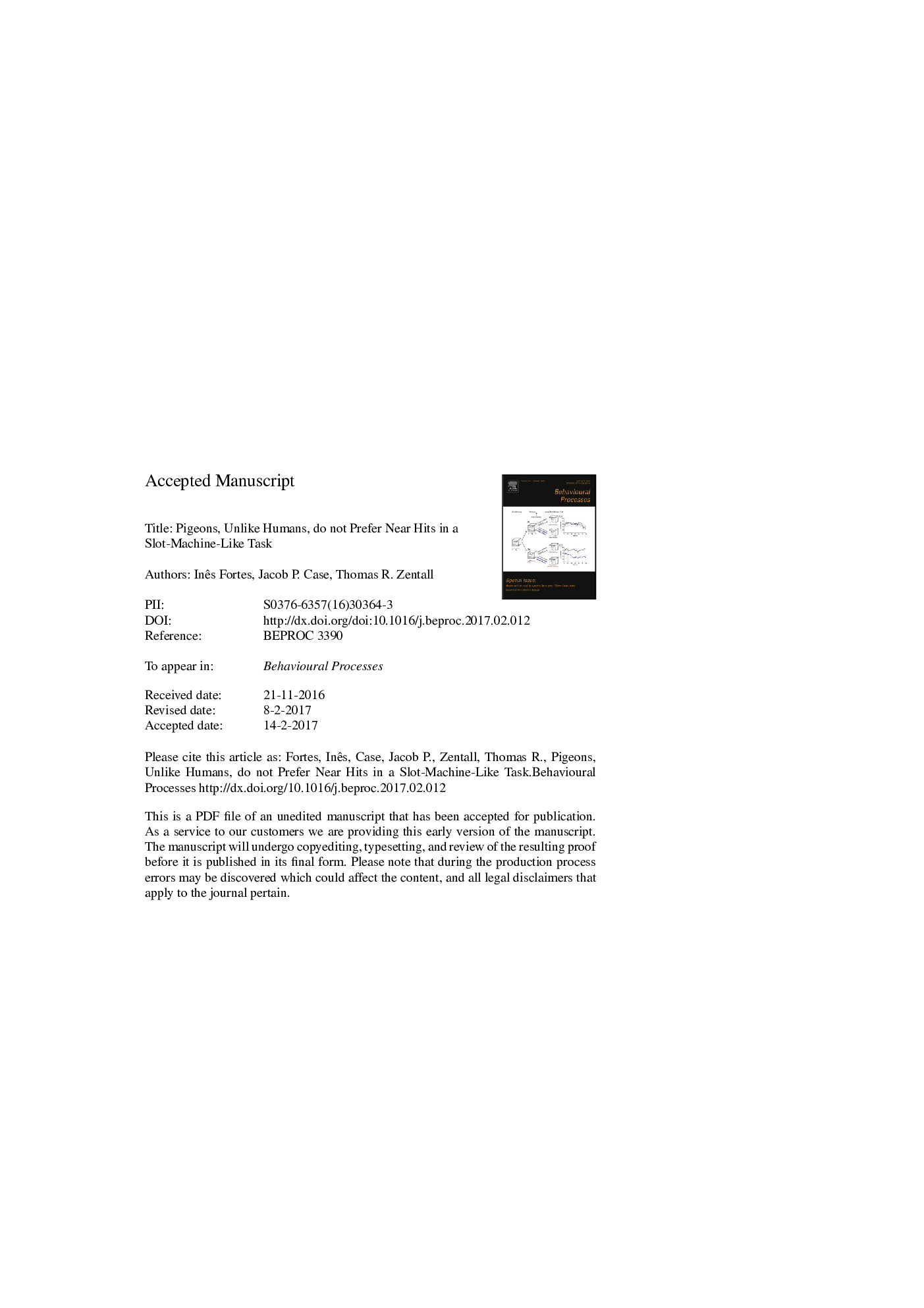| Article ID | Journal | Published Year | Pages | File Type |
|---|---|---|---|---|
| 5539651 | Behavioural Processes | 2017 | 26 Pages |
Abstract
Slot machines are among the most popular forms of commercial gambling, and the high frequency of losses that come close to winning - near hits - in this game appears to contribute to its popularity. In the present experiment we tested if pigeons, similarly to humans, prefer an alternative that provides near-hit outcomes in a slot-machine-like task. The pigeons received series of three stimuli, one every two seconds: if the three stimuli matched, food was delivered (a win); if they did not match, food was not delivered (a loss). We gave pigeons a choice between two options that provided food with the same probability but they differed in the sequence of stimuli on loss trials. For the near-hit alternative the non-matching stimulus was the third one (defined as a near hit). For the clear-loss alternative the non-matching stimulus was the second one. We found that the pigeons preferred the clear-loss alternative, that is, they preferred to be given information about the outcome sooner. This result is consistent with prior research on suboptimal choice with pigeons that emphasizes the role of information in choice but is inconsistent with the results of research with humans.
Keywords
Related Topics
Life Sciences
Agricultural and Biological Sciences
Animal Science and Zoology
Authors
Inês Fortes, Jacob P. Case, Thomas R. Zentall,
